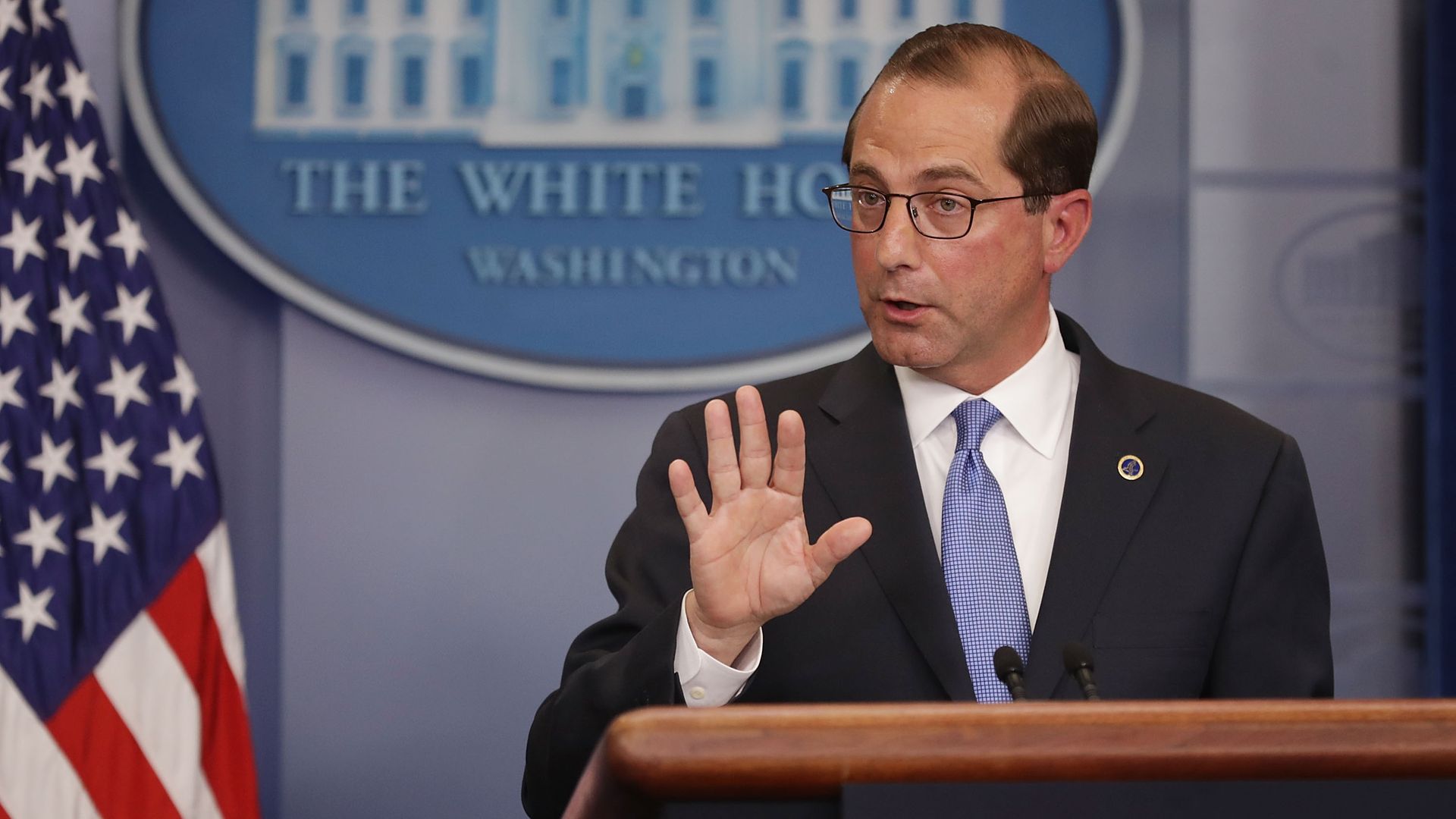Drug ads will have to include prices
Add Axios as your preferred source to
see more of our stories on Google.

HHS Secretary Alex Azar. Photo: Chip Somodevilla/Getty Images
The Department of Health and Human Services formally rolled out a proposal yesterday that would require drug companies to include their products’ list prices in their TV ads, similar to the way they disclose side effects.
The big picture: There’s a legitimate debate about how this would work and how big a difference it will make. But it is, notably, the first real showdown with the pharmaceutical industry since the administration released its drug-pricing plan earlier this year.
- "It has taken them five months ... to start skating to where the puck is going," HHS Secretary Alex Azar said yesterday.
Details: Drugmakers will have to disclose the list prices — the wholesale acquisition cost, to be specific — in TV ads for every drug reimbursed by Medicare or Medicaid, as long as the price is more than $35 for a month’s prescription.
- The regulation ended up coming from Medicare and Medicaid, rather than the FDA, because those agencies have a mission to control costs — which may help put the rule on more solid legal footing.
- Price disclosures will only have to be in text, not voiceover. Officials said that would make the rules less onerous for drug companies.
- HHS would enforce the rules by publishing a list of companies and products that didn’t comply, and noncompliance could also trigger lawsuits.
What’s next, from the industry side: The pharmaceutical industry suggested yesterday that it's likely to challenge the rules in court once they're finalized, alleging a First Amendment violation.
What's next, from the regulatory side: The administration is considering more rules cracking down on pharmacy benefit managers (PBMs). The White House is reviewing a proposal to rein in their lucrative rebates.
- “We believe today's rebates, which helped drive list prices skyward, are not necessary to a strong negotiating ecosystem,” Azar said yesterday. “They could be replaced with fixed-price up-front discounts.”
